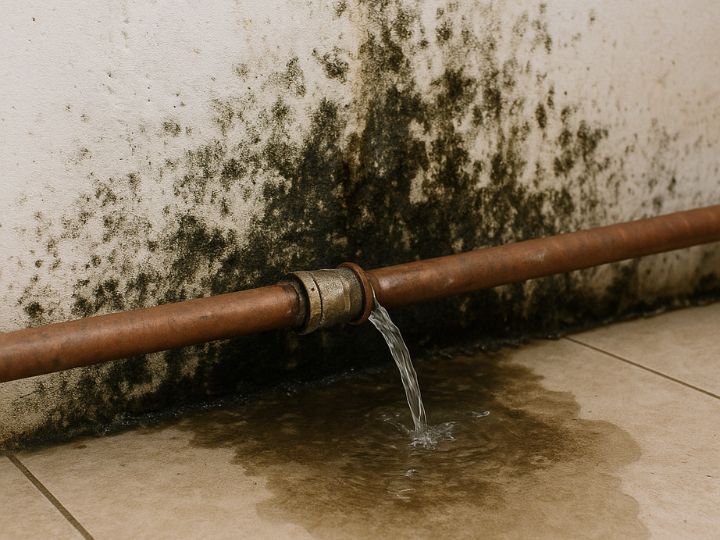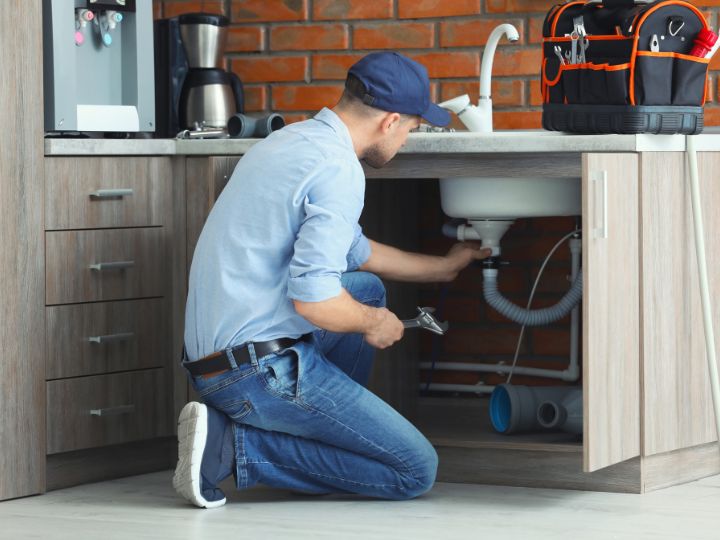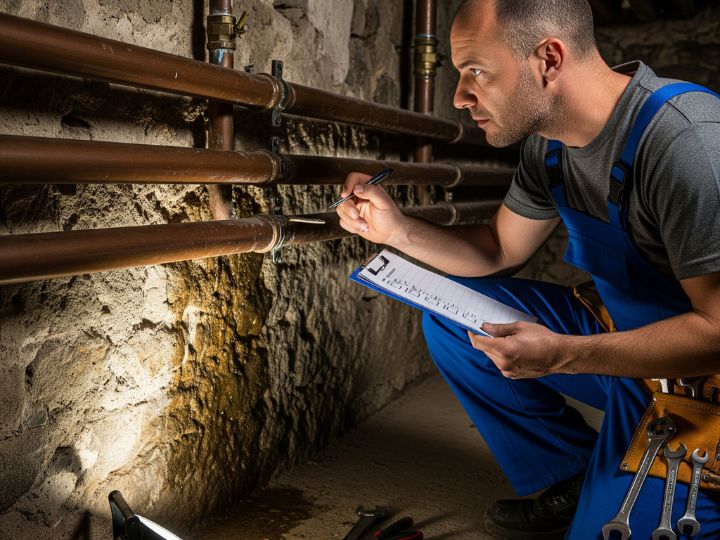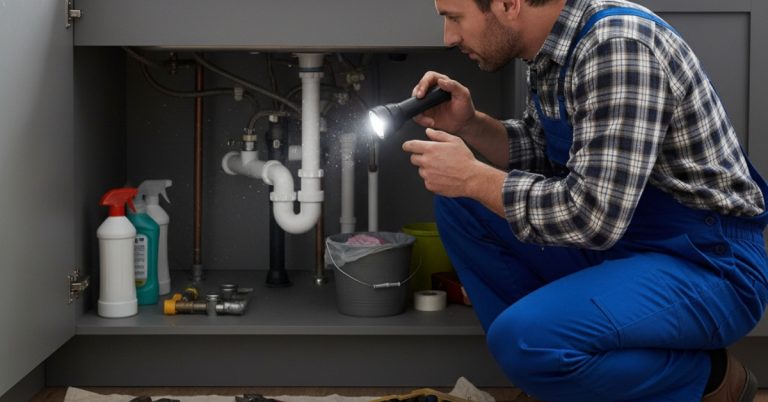Yes, preventive plumbing maintenance is worth the investment as it helps detect issues early, reduces repair costs, extends system lifespan, and prevents water damage—saving homeowners time, money, and stress in the long run.
Key Takeaways:
- Prevents costly plumbing emergencies
- Extends plumbing system lifespan
- Reduces long-term repair expenses
- Identifies issues before they worsen
- Helps maintain home value and safety
Plumbing problems often strike when you least expect them, leading to expensive repairs and major headaches. That’s why many homeowners are starting to ask, is preventive plumbing worth it? The answer lies in understanding how preventive plumbing maintenance can save you time, money, and stress. From spotting hidden leaks to avoiding water damage disasters, routine checkups offer long-term benefits. In this blog, we’ll explore why investing in preventive plumbing maintenance is one of the smartest moves for protecting your home.
Table of Contents
Understanding Preventive Plumbing Maintenance
Preventive plumbing maintenance refers to routine inspections and upkeep of a building’s plumbing system to identify and correct minor issues before they escalate into major problems. This includes checking pipes, fixtures, drains, water heaters, shut-off valves, and more. The goal is simple: minimize costly repairs and extend the life of the plumbing infrastructure.
The True Cost of Reactive vs. Preventive Plumbing
Homeowners who wait for a problem to occur often face emergency plumbing repair costs that are significantly higher than the cost of scheduled maintenance. Emergency repairs may require urgent service fees, extensive part replacements, and even water damage restoration.
On the other hand, regular inspections can prevent common issues such as:
- Leaky pipes
- Clogged drains
- Water heater malfunctions
- Corroded or aging plumbing materials
- Sewer line backups
A typical annual preventive plumbing check might cost between $150 and $300, whereas emergency repairs due to burst pipes or sewage issues can exceed $2,000–$10,000, especially when flooring, drywall, and mold remediation are involved. In some cases, more intensive solutions like Hydro Jetting services may be recommended to thoroughly clean blocked or slow-moving drains before they lead to backups.
Prolonging the Lifespan of Your Plumbing System
Just as regular oil changes prolong the life of a vehicle, preventive maintenance significantly increases the longevity of plumbing systems. Pipes, valves, and appliances function more efficiently when kept in optimal condition.
Water heaters, for example, have a lifespan of 8–12 years. With regular flushing and sediment removal, their performance can be maintained or even extended. Similarly, PEX and copper piping can last several decades—but only when issues like corrosion, hard water scaling, or excessive water pressure are detected early and corrected. When performance issues persist, your plumber may recommend a water heater replacement to improve efficiency and avoid future breakdowns.
Reducing Water Bills and Preventing Water Waste
Undetected leaks are a leading cause of high water bills. A single faucet dripping once per second can waste over 3,000 gallons per year. Toilets that run continuously may waste even more—without any noticeable signs. Through preventive plumbing inspections, leaks in hidden pipes, toilet tanks, or irrigation systems can be identified and fixed before they become expensive problems.
Additionally, water efficiency upgrades like low-flow faucets, pressure regulators, and leak detectors can be recommended during maintenance visits, providing long-term savings and environmental benefits, as supported by the EPA’s WaterSense program, which promotes water-efficient products and practices.
Preventing Property Damage and Health Hazards

Water damage is not only expensive to repair but also dangerous. It can compromise the structure of a home, rot wooden beams, damage drywall, and create the perfect environment for toxic mold growth. Mold poses serious health risks, especially to individuals with asthma or weakened immune systems.
Preventive plumbing maintenance helps avoid these outcomes by:
- Inspecting for pipe corrosion and leaks in walls or floors
- Ensuring sump pumps are functioning correctly
- Monitoring water pressure to prevent burst pipes
- Cleaning out drains to avoid backups
- Conducting gas leak detection as part of a safety checklist, especially in homes using natural gas for water heating or cooking
Early detection protects your home or business from thousands of dollars in damage and potential health concerns.
Peace of Mind with Predictable Maintenance Schedules
Unlike emergency repairs that cause stress, disruption, and last-minute expenses, scheduled maintenance is predictable. Most plumbing companies offer annual or biannual inspection plans, which include:
- Full system inspection
- Drain camera services
- Water heater testing
- Shut-off valve checks
- Sewer and septic evaluations
This proactive approach ensures peace of mind, especially for those with rental properties, elderly family members, or commercial properties where downtime is costly.
Get your water heater repaired or replaced the same day
Boosting Home Value and Saleability
For homeowners planning to sell, a well-maintained plumbing system can significantly boost property value. Real estate inspectors and potential buyers often scrutinize plumbing systems. Visible signs of neglect—leaky faucets, rust-stained fixtures, or slow drains—can reduce buyer confidence.
Having records of professional maintenance history proves that the property is well cared for. It’s a compelling selling point and could prevent price negotiations or requests for repairs before closing.
Eco-Friendly Benefits of Preventive Maintenance
Preventive plumbing maintenance contributes to sustainability. By ensuring systems run efficiently and addressing leaks promptly, homeowners can significantly reduce their environmental footprint. This includes:
- Conserving water through leak detection
- Preventing water pollution from sewage overflows
- Reducing energy usage in hot water systems
- Encouraging responsible resource management
In an era where green building practices matter more than ever, regular plumbing upkeep aligns with environmental goals and regulatory compliance for commercial properties.
What to Expect During a Preventive Plumbing Inspection

A thorough plumbing maintenance visit typically includes:
- Visual inspection of all accessible plumbing components
- Testing of water pressure and flow rates
- Checking for signs of corrosion or mineral buildup
- Flushing water heaters to remove sediment
- Inspecting drain lines with video equipment
- Ensuring all valves operate correctly
- Reviewing the condition of sewer lines and sump pumps
Modern plumbing companies may also offer smart leak detection solutions, helping homeowners monitor water usage and receive alerts in real-time.
Choosing a Reliable Plumbing Maintenance Provider
To fully benefit from preventive maintenance, it’s crucial to work with licensed, insured, and experienced plumbing professionals. Choose a provider that:
- Offers transparent pricing and detailed reports
- Uses advanced diagnostic tools
- Has strong local reviews and references
- Provides customized maintenance schedules based on property size and usage
Ask for a checklist of what will be inspected, and ensure your plumber explains any potential issues clearly and honestly. For homeowners looking for a provider that meets all these standards and more, 5 Star Best Plumbing is a trusted choice for plumbing services. Our commitment to professionalism, reliability, and customer satisfaction makes them a top recommendation for ongoing plumbing maintenance.
Final Verdict: Is Preventive Plumbing Maintenance Worth the Investment?
Absolutely, investing in preventive plumbing maintenance is one of the smartest decisions a homeowner can make. From catching small issues before they spiral out of control to improving energy efficiency and reducing monthly water bills, the benefits far outweigh the cost. Regular checkups not only extend the life of your plumbing system but also offer peace of mind knowing your home is protected from unexpected and costly damage.
By choosing scheduled plumbing services, you’re opting for reliability, safety, and long-term savings. Whether you’re a homeowner or a property manager, don’t wait for plumbing disasters to strike. Be proactive—contact us today to schedule your next inspection and experience the difference professional maintenance can make.
FAQs
How often should I schedule preventive plumbing maintenance?
Most professionals recommend annual plumbing inspections, though high-usage or older systems may benefit from biannual checks. Regular visits help catch small issues before they become costly emergencies.
What’s included in a typical preventive plumbing maintenance visit?
A standard inspection includes checking pipes, drains, valves, water heaters, and water pressure, plus video camera inspections if needed. Many plumbers also test for leaks, corrosion, and sediment buildup.
Can preventive plumbing maintenance really lower my water bill?
Yes—small leaks and inefficient fixtures can significantly raise water bills without obvious signs. Routine maintenance identifies and resolves these hidden issues early.
Is preventive plumbing worth it for newer homes?
Absolutely. Even new systems can develop issues from poor installation, shifting soil, or hard water buildup, making early inspections beneficial.
How do I choose the right plumbing maintenance provider?
Look for licensed, insured professionals with strong local reviews and transparent service plans. Ask for a checklist of inspection items and ensure they use modern diagnostic tools.








